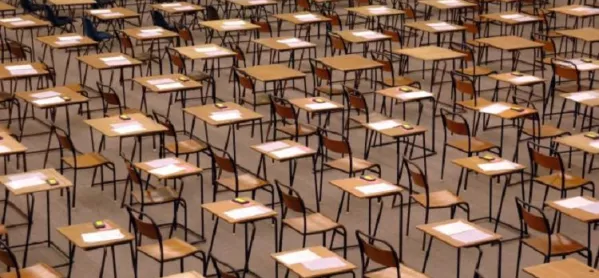In my blog last week, ”It’s obvious: learning outside the classroom works”, I identified some research that proved what we already knew, but was welcome nonetheless. A few days later, blow me if some more examples didn’t come along.
The front page of Wednesday’s Times proclaimed: “Switch off mobiles at 10pm to stay happy.” A “huge” study by the University of Glasgow, reported in The Lancet Psychiatry, “links late phone use with poor sleep”.
Come on, medics: keep up with schools! For once, the education world is ahead. For the past few years the amazing @DigitalSisters, Emma and Charlotte Robertson, founders of Digital Awareness UK (DAUK), have been travelling the country to educate schools, students and parents alike about taking control of technology, instead of being ruled by it.
Among their top tips: leave the phone outside the bedroom and no screen-time for an hour before bedtime. Parents should set an example by doing likewise.
Yes, it’s good to see what we already knew proved by large-scale scientific research. Here’s another example. Academics at LSE, who published their work in the Economics of Education Review and were the subject of a Tes report by Charlotte Santry on Tuesday, have discovered that school choice leads to unhappy pupils.
Choice itself doesn’t lead to unhappiness, but the competition created between academies, faith schools and the independent sector does. It’s not about school types, but competition.
Schools have always competed up to a point, without causing harm. Independent schools, by their nature inherently competitive, readily work together, sharing practice, experience, and advice: though I confess that, at recruitment time, the gloves tend to come off.
That particular brand of superheated league-table-driven competition leads to a syndrome identified by the LSE study, which declares that schools competing for pupils:
“are more likely to adopt teaching methods which, although academically effective, are not necessarily inspiring or enjoyable for children…. These methods include ‘boring’ teaching styles including drill and repetition, more homework, hierarchical pupil-teacher relations and increased pressure from parents.”
League tables started it. Such pressure was unknown before them, in an era that I can recall. When league tables first appeared in the early 1990s, schools suddenly realised that they were perhaps exposed - or that their complacency was, at any rate - and that they needed to put their houses in order.
Inspirational learning becomes ‘too risky’
What perhaps started healthily swiftly turned sour, as the LSE study proves. Where schools - independent, comprehensive, selective, academy, faith or free - feel under pressure for pupils, their first recourse is to raise exam results: much the same as when they feel under pressure from Ofsted or government benchmarks.
At that moment, the liberal, inspiring, student-centred, self-directed learning that great teaching aims to achieve becomes suspect: canny school leadership and governance view it as a high-risk strategy. Rather like St Augustine of Hippo, they may still vow nonetheless to become good, not to say progressive - but not yet. Thus, as the LSE study describes, those regressive, dispiriting approaches take root once more.
I’ve always clung to the belief that challenging, inspiring, open-ended teaching is what gives rise to the highest-quality learning: but I’ve felt the pressure. And I’ve seen too many schools succumb, schools in both sectors and of every type.
The LSE study may thus have uncovered a problem, but many will refuse to recognise it as one. Indeed, some schools, some academy chains and all too many parents will see drills, repetition and more homework as a badge of honour: such “traditional” methods are often cited as constituting “real” education.
Not many cheers for this piece of research, then. It’s accurate, and it uncovers an unsightly underbelly that exists in education. But, in its audience, there are none so blind as those who don’t want to see.
Dr Bernard Trafford is a writer, educationalist and musician. He is a former headteacher of the Royal Grammar School, Newcastle, and past chair of HMC. He is currently interim headteacher of the Purcell School in Hertfordshire. He tweets @bernardtrafford





